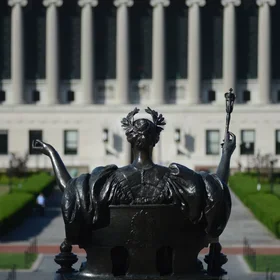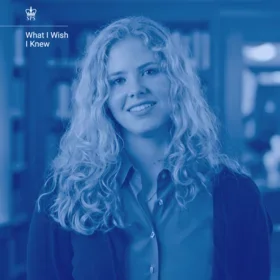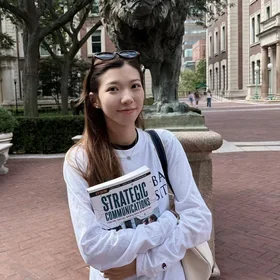Noam Bar-Lev, Chief of Staff of the Deputy Ambassador, Permanent Mission of Israel to the United Nations, is a student in Columbia’s Executive M.S. in Strategic Communication program. She discusses how she is applying the skills and practices she is learning in the program in her role representing Israel to the world.
Why did you choose the Executive M.S. in Strategic Communication program at Columbia?
Choosing the program was a result of a long thinking process. I realized that I am passionate about creative brand positioning and shaping long-term strategy, and I wanted to find a program that combines my experience in both fields. I also wanted it to include practical tools and real-world case studies. After reviewing many programs in the field, I decided to apply to the program that combines everything I was looking for.
Tell us about your role at the Permanent Mission of Israel to the United Nations. What do your duties entail?
I started working at the office of the Deputy Permanent Representative and then became its Chief of Staff. Today I work closely with our Ambassadors, the Permanent Representative and Deputy Permanent Representative. I synchronize and integrate many factors and make sure that things are done. My work is diverse and includes crafting key talking points for Ambassadorial meetings, conducting background research on dozens of countries and their history, politics, economy, demographic statistics, and more. I correspond with UN Missions and Jewish organizations and am also the head of our internship program. There is a strong connection between the skills and practices we use in the Executive Strategic Communication program and my work; it's all about shaping our messages, interacting with people, and communicating our agenda at the UN.
What kind of impact are you looking to make in the role?
In the last decade, I have worked in the private, public, and civil sectors and used communication to strengthen brands. I am proud to be part of the Permanent Mission of Israel to the UN, and I am continually looking for ways to leverage new knowledge and provide fresh insight. I am excited to learn about other countries and think about ways we can cooperate with them and share Israel's impact in the world.
I am excited to learn about other countries and think about ways we can cooperate with them and share Israel's impact in the world.
— Noam Bar-Lev, '22SPS, Executive M.S. in Strategic Communication; Chief of Staff of the Deputy Ambassador, Permanent Mission of Israel to the United Nations
How does your role in diplomacy connect to what you are learning at Columbia?
Diplomacy is a master class of communication. It is a powerful tool that helps promote strategic goals through effective communication and storytelling. Both in other forms of communications, as in diplomacy, it is essential to control the way your message is perceived and think thoroughly about what you want to achieve.
Are there specific classes, professors, resources, or connections that you value?
Our classes are insightful and provide a holistic overview of all the skills executives need to get a seat at the decision-making table, from my verbal and writing skills, to conducting research and analysis, to excelling in digital media and analytics, to empowering my leadership. Our professors hold executive leadership roles themselves, which makes their perspective even more valuable. The program threaded content that influences my experience and helps me take it to the next level.
Do you have any advice for students interested in pursuing similar leadership roles?
Choose roles that stretch your abilities, and never stop trying. Taking the risk to fail might open excellent opportunities you could have never dreamt of.
Learn more about Columbia’s Executive M.S. in Strategic Communication program.


